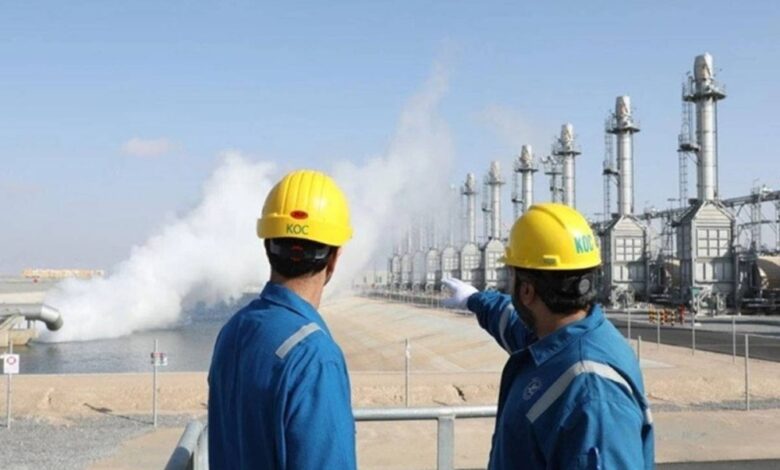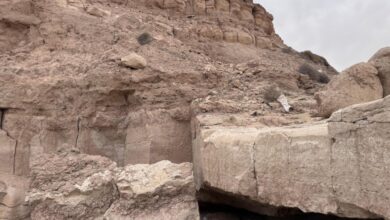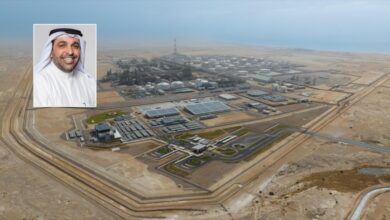
-
The real challenge facing the Kuwaiti economy is not the abundance of resources but rather achieving optimal use of them, following past mismanagement, reveals Al-Shall Consulting Company.
-
The Al-Nokhada field is a potential nucleus for other discoveries. Its primary importance lies not in its high-quality oil but in its potential to address a significant shortage in Kuwait’s gas needs.
The weekly report from Al-Shall Consulting Company stated that the figures suggesting Kuwait’s sovereign fund is approaching one trillion dollars are inaccurate.
According to Al Jarida newspaper, the real challenge facing the Kuwaiti economy is not the abundance of resources but rather achieving optimal use of them, following past mismanagement.
The report stated that “only prudent management makes a difference, and its indicators of prudence are weak.”
The report further noted that, the continued discovery of new oil fields in the country, along with the operation of idle fields, are positive developments. However, the most important factor is the sector’s return to its core activities through successful investment in local exploration and the development of infrastructure to reach the stages of production, manufacturing, and export, especially after previous oil strategies failed to achieve their production capacity targets.
The report highlighted that the Al-Nokhada field is a potential nucleus for other discoveries. Its primary importance lies not in its oil content, despite its better quality, but in its potential to address a significant shortage in Kuwait’s gas needs.
The report added that more discoveries and production would have a better impact if they were turned into a blessing rather than a curse. It cited Norway and Venezuela as examples of ‘the blessing and curse of resources.’
Norway has reaped all the benefits of oil, with its sovereign wealth fund reaching about $1.6 trillion. In contrast, Venezuela, having followed the full recipe for the ‘resource curse,’ has no savings, and about 90 percent of its population has become poor and eager to emigrate.
The weekly report from Al-Shall Consulting Company stated that it is positive that new oil discoveries are continuing in Kuwait and that previously inactive oil fields are now operating.
Al-Shall added that the situation is favorable from two perspectives. First, Kuwait now needs production from new reservoirs to support and relieve pressure on aging ones, as previous oil strategies failed to achieve their production capacity targets. Second, and perhaps most importantly, the oil sector is returning to its core activities, which include successful investment in local exploration and the development of infrastructure to reach production, manufacturing, or export stages.
The Al-Nokhada field serves as an example; its significance lies not just in its oil content, which, despite being of better quality, accounts for less than three percent of the announced oil reserves, but in its potential to address a significant shortfall in the country’s gas needs later on.
Al-Shall explained that increasing the country’s resources through more discoveries or production will have a better impact if managed wisely, turning them into a blessing rather than a curse. This is the crucial difference in economics: prudent use of proceeds versus poor investment. Contemporary examples illustrate the ‘blessing and curse of resources.’
Norway, with the lowest oil reserves, has benefited immensely, while Venezuela, with the largest conventional oil reserves, has suffered due to mismanagement.
Norway’s oil reserves currently stand at about 7.6 billion barrels according to the latest OPEC+ data, and oil production began in June 1971. Before auctioning off oil reservoir sites, Norway’s government and parliament decided to mitigate the negative impact of oil revenues on economic competitiveness, learning from the failed experience of its neighbor, the Netherlands, which suffered from the “Dutch Disease.”
Norway’s oil revenues are not invested or used internally except in cases of extreme necessity, and public financial revenues are not financed beyond four percent of total public expenditures.
As a result, Norway has reaped the benefits of oil, amassing a sovereign fund of about $1.6 trillion as of last June, with the fund’s returns far exceeding oil revenues. Public finances continue to be supported by taxes on sustainable and competitive economic activity.
In contrast, Venezuela, with 303 billion barrels of conventional oil reserves—the highest in the world—has mismanaged its resources entirely. Despite its vast area of 916.4 thousand square kilometers, a population of 29.4 million, rich water resources, and 2,800 kilometers of coastline, its economy has lost all competitiveness.
The oil sector has been used for random employment, and skilled workers have been replaced by regime loyalists. Venezuela has no savings to meet any obligations, its currency is nearly worthless, half of the workforce is unemployed, about 90 percent of the population is poor, and many are eager to emigrate. In other words, Venezuela has fully realized the “resource curse.”
Al-Shall emphasized that between “blessing” and “curse,” other oil-producing countries occupy various positions on this spectrum, some closer to Norway and others to Venezuela.
With Kuwait announcing its new discoveries and claiming that its sovereign fund is approaching a trillion dollars (which are not precise figures), the real challenge remains: not the abundance of resources but rising to the top of the ladder by optimally using them, following past mismanagement. While this goal is within reach, only prudent management will make a difference, and current indicators of prudence are weak. The Al-Nokhada field is likely to address a significant shortfall in the country’s gas needs.












